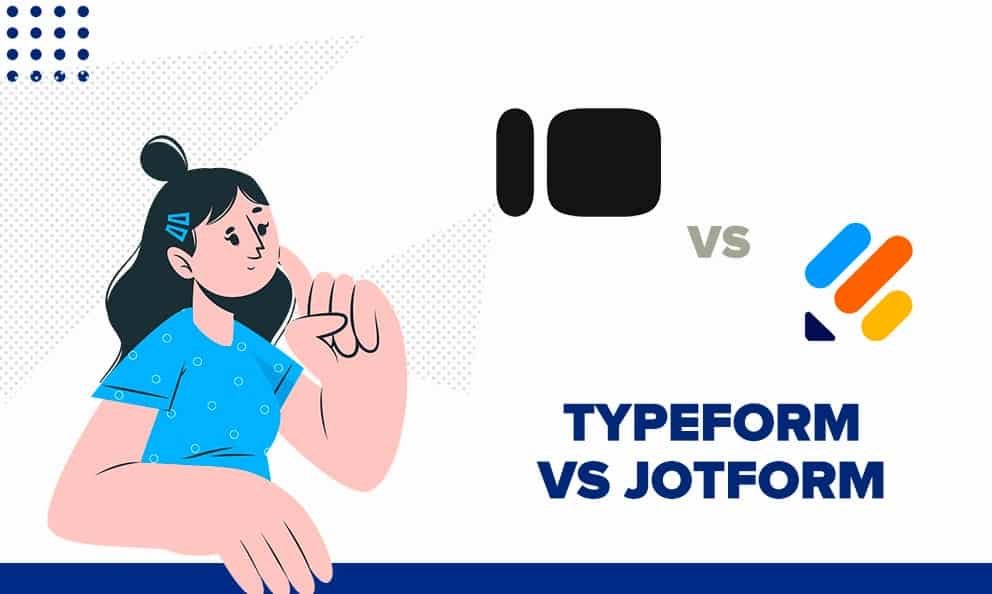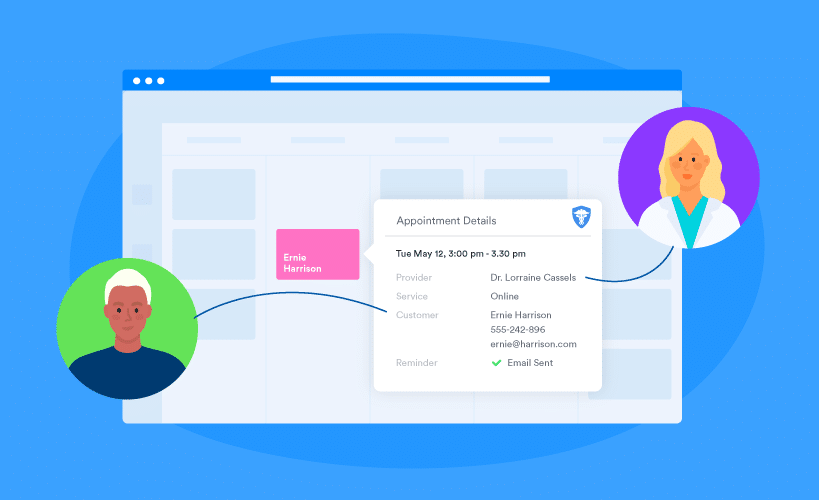Managing HR tasks can be overwhelming for small businesses. The right HR software can streamline operations and boost efficiency.
In today’s fast-paced business world, small companies need tools that simplify employee management, payroll, and recruitment. The best HR software solutions offer intuitive interfaces and scalable features tailored for smaller teams. This blog will explore top HR software options designed specifically for small businesses.
From automating repetitive tasks to managing employee data securely, these tools provide comprehensive solutions. Investing in the right HR software can save time, reduce errors, and help small businesses focus on growth. Stay tuned as we delve into the best choices available in the market.
Introduction To Hr Software
Human Resources (HR) software helps businesses manage employee-related tasks. It simplifies processes like recruitment, payroll, and performance tracking. For small businesses, HR software can make a big difference. It saves time and reduces errors.
Importance For Small Businesses
Small businesses often have limited resources. HR software can ease the burden of managing employees. It helps with hiring, onboarding, and training new staff. It also ensures compliance with labor laws. This software can improve employee satisfaction. Happy employees are more productive. HR software helps small businesses grow.
Key Features To Look For
Not all HR software is the same. Small businesses should look for specific features. First, ease of use is crucial. The software should have a simple interface. Next, consider automation. Automated tasks save time and reduce errors. Third, look for integration. The software should work well with other systems. Payroll and accounting systems are key. Reporting is another important feature. Good HR software provides detailed reports. These reports help in decision-making. Security is also vital. Employee data must be protected. Choose software with strong security measures. Lastly, consider scalability. The software should grow with your business.
Top Hr Software Solutions
Choosing the best HR software for small businesses can be challenging. The right solution can help manage employee data, payroll, and other HR tasks efficiently. In this section, we will explore some of the top HR software solutions available today.
Comparison Of Popular Options
There are many HR software options available. Each offers unique features to fit different business needs. Some popular options include BambooHR, Gusto, and Zoho People. BambooHR is known for its user-friendly interface. It offers tools for tracking employee information and performance.
Gusto is great for businesses needing payroll and benefits management. It includes automated payroll processing and employee self-service. Zoho People is ideal for companies seeking a customizable solution. It provides features for attendance tracking, leave management, and more.
Pricing And Plans
Pricing varies among HR software solutions. BambooHR offers a subscription model starting at $6 per employee per month. Gusto has three pricing tiers: Basic, Core, and Complete. The Basic plan starts at $19 per month plus $6 per employee. Zoho People offers a free plan for up to five users. Paid plans start at $1 per employee per month.
Consider your budget and business size. Choose the plan that fits your needs best. Always review what each plan includes before making a decision.
Benefits Of Using Hr Software
Small businesses benefit greatly from HR software by streamlining employee management tasks. This software helps in tracking attendance, managing payroll, and ensuring compliance with labor laws.
The benefits of using HR software for small businesses can significantly impact your operations. It helps streamline your HR tasks, making your work easier and more efficient. Let’s dive into some key advantages you’ll experience when using HR software.Efficiency And Productivity
HR software automates repetitive tasks like payroll and attendance tracking. This means you can focus on more strategic activities. Your HR team will spend less time on paperwork and more time on improving employee engagement. Imagine having all your employee data in one place. With a few clicks, you can access information, generate reports, and make data-driven decisions. This boosts your productivity and helps you stay organized.Compliance And Risk Management
Staying compliant with labor laws and regulations can be challenging. HR software keeps track of all legal requirements and updates. This ensures your business adheres to the latest rules, reducing the risk of penalties. HR software also helps you manage employee records securely. It provides a reliable way to store and retrieve documents, ensuring confidentiality and data protection. This reduces the risk of data breaches and legal issues. By using HR software, you not only streamline your HR processes but also safeguard your business. Are you ready to enhance your HR operations and protect your business at the same time?
Credit: www.selectsoftwarereviews.com
Hr Software For Recruitment
Finding the right talent for your small business can be challenging. HR software for recruitment helps ease this process. It streamlines tasks and ensures that you get the best candidates efficiently.
Streamlining Hiring Processes
HR software can greatly simplify your hiring process. Imagine not having to sift through piles of resumes manually. These tools can filter applications based on your specific needs.
Automation saves you time and reduces human error. You can schedule interviews, send automated emails, and keep track of applicant status—all in one place. This frees you up to focus on other important tasks.
I once struggled with managing job applications for my small business. After using HR software, I noticed a significant improvement. The process became smoother, and I could dedicate more time to interviewing the best candidates.
Applicant Tracking Systems
Applicant Tracking Systems (ATS) are a must-have feature in HR recruitment software. They keep everything organized, from job postings to final hiring decisions. You can track where each applicant is in the hiring process.
ATS allows you to communicate with applicants effortlessly. You can send updates, interview requests, and offer letters with just a few clicks. This ensures a positive experience for candidates and reflects well on your company.
Consider how much easier your life would be with an ATS. No more lost resumes or missed follow-ups. It keeps you on top of your game and makes your business look professional.
Are you using HR software for recruitment? If not, what’s holding you back from making your hiring process more efficient?
Employee Management Features
Managing employees in a small business can be challenging. The right HR software makes this task easier. Focusing on the key employee management features helps you save time. It also ensures smooth operations.
Attendance And Leave Tracking
Keeping track of attendance and leave is crucial. HR software automates this process. Employees can clock in and out with ease. The system records each entry accurately. This reduces manual errors. You can view who is in or out in real-time. It helps in planning shifts and managing workloads. The software also allows employees to request leave online. Managers can approve or deny requests quickly. This makes the leave process transparent and efficient.
Performance Evaluation
Regular performance evaluations are important. HR software simplifies this task. You can set clear goals for employees. The system tracks progress towards these goals. Managers can provide feedback easily. Employees know their strengths and areas for improvement. This encourages growth and development. Automated reminders ensure evaluations are timely. You can store all performance data in one place. This makes it easy to review past evaluations. It also helps in making promotion decisions.
Payroll And Benefits Administration
Managing payroll and employee benefits can be challenging for small businesses. Streamlining these processes is crucial for efficiency. The best HR software offers solutions for payroll and benefits administration. This ensures accuracy and saves time.
Automating Payroll Processes
Automating payroll is essential for small businesses. Manual payroll processes are time-consuming and prone to errors. With HR software, you can automate calculations and deductions. This reduces mistakes and ensures timely payments. Employees receive accurate paychecks without delays.
HR software also handles tax calculations. It keeps up with tax laws and regulations. This helps you avoid penalties and ensures compliance. Automated payroll processes save time and reduce stress.
Managing Employee Benefits
Employee benefits are important for retaining talent. Managing these benefits can be complex. HR software simplifies this process. You can track and manage health insurance, retirement plans, and other benefits. This ensures employees get the benefits they deserve.
HR software also provides self-service options. Employees can view and manage their benefits online. This reduces the workload for HR staff. It also empowers employees to make informed decisions about their benefits.
In summary, the best HR software for small businesses simplifies payroll and benefits administration. It automates payroll processes and manages employee benefits efficiently. This ensures accuracy, compliance, and employee satisfaction.
Integration With Other Tools
Choosing the right HR software for your small business is crucial. One key factor to consider is how well the software integrates with other tools you already use. Seamless integration can save you time, reduce errors, and enhance productivity. Let’s dive into how these integrations can make your life easier.
Compatibility With Existing Systems
When selecting HR software, check its compatibility with your current systems. Imagine your payroll system and HR software exchanging data without any manual input. This not only saves time but also minimizes errors.
Your existing systems might include accounting software, project management tools, or even communication platforms like Slack. Ensure the HR software you choose can easily connect with these tools. Compatibility means less hassle and a smoother workflow.
Third-party Integrations
Look for HR software that supports third-party integrations. This allows you to link the software with popular applications your team uses daily. For instance, integrating with Google Workspace or Microsoft Office can streamline document management.
Consider software that works well with time-tracking tools like Toggl or Trello for project management. These integrations help centralize your operations. You won’t need to switch between multiple apps, making your workflow more efficient.
Imagine being able to pull employee performance data directly into your HR software from your project management tool. This can help you make informed decisions quickly. Does your current HR software offer these capabilities? If not, it might be time for an upgrade.
Integration with other tools isn’t just about convenience; it’s about creating a cohesive ecosystem where all your systems work together seamlessly. This can lead to better data accuracy, improved efficiency, and ultimately, a more productive team.

Credit: icomppayroll.com
Choosing The Right Hr Software
Finding the best HR software for small businesses helps streamline operations and enhance productivity. Small companies benefit from user-friendly, cost-effective solutions tailored to their specific needs.
Choosing the right HR software is crucial for small businesses. It can streamline operations, save time, and help manage your team more effectively. But with so many options available, how do you know which one is the best fit for you? Let’s break it down.Assessing Business Needs
Start by understanding your business’s specific HR needs. Do you need help with payroll, recruitment, or employee scheduling? Make a list of the features you need. Talk to your team and get their input. They might highlight needs you hadn’t considered.Tips For Making The Decision
Research is key. Look for software that fits your list of needs. Check user reviews and ratings. They can provide valuable insights into the software’s performance. Take advantage of free trials. This lets you test the software before committing. Consider your budget. Sometimes, the most expensive option isn’t the best one for your business. Remember, the goal is to choose a tool that simplifies your HR tasks and fits seamlessly into your operations. Have you experienced a major win or challenge with HR software? Share your story in the comments!Case Studies And Success Stories
When choosing the best HR software for your small business, real-world examples can be incredibly helpful. Case studies and success stories provide practical insights into how companies like yours have benefited from these tools. They reveal what works, what doesn’t, and how you can avoid common pitfalls.
Small Business Success
One small business, a boutique marketing agency, struggled with managing employee records. They chose an HR software that offered customizable templates for their specific needs. Within three months, their HR department saved over 10 hours a week on administrative tasks.
Another example is a local bakery that used HR software to streamline their hiring process. They were able to post job openings, track applications, and communicate with candidates all from one platform. This led to a 50% reduction in time-to-hire, allowing them to fill positions faster and grow their team.
Lessons Learned
These success stories highlight important lessons. First, it’s crucial to choose software that fits your unique needs. Don’t go for the most popular option; find the one that addresses your specific challenges.
Second, training is key. Ensure your team knows how to use the new system effectively. This often means investing time upfront to save hours later.
Lastly, always consider scalability. Your business will grow, and your HR software should be able to grow with you. Look for features that can be expanded or adapted as you add more employees and locations.
Have you ever implemented a software solution that transformed your business operations? What challenges did you face, and how did you overcome them? Share your experiences and let’s learn together.
Future Trends In Hr Software
As technology evolves, HR software is adapting rapidly. Small businesses must stay updated with the latest trends to remain competitive. Future trends in HR software promise to streamline HR tasks, improve efficiency, and enhance the employee experience. Let’s explore some of these key trends shaping the future of HR software.
Ai And Automation
AI and automation are transforming HR processes. Routine tasks like resume screening, scheduling interviews, and onboarding can now be automated. This reduces the workload for HR teams. AI can also provide valuable insights from employee data. It helps in making informed decisions, predicting employee turnover, and enhancing employee engagement. AI-powered chatbots are now assisting employees with common HR queries. This ensures quick responses and improves overall satisfaction.
Remote Workforce Management
Managing remote employees is a growing challenge. HR software is evolving to address this. Features like virtual onboarding, remote performance tracking, and digital communication tools are now essential. These tools help in keeping remote teams connected and productive. HR software also offers solutions for monitoring remote work hours and productivity. It ensures transparency and fairness in performance evaluations. Online training and development modules keep remote employees engaged and updated. This is crucial for their growth and retention.
Conclusion And Recommendations
Choosing the best HR software for small businesses requires careful consideration. You need a solution that fits your budget and meets your unique needs. The right software can streamline processes and improve efficiency. Let’s wrap up our discussion with some final thoughts and steps for implementation.
Final Thoughts
HR software can transform how you manage your workforce. It helps automate tasks and saves time. Many options offer features like employee tracking, payroll management, and performance reviews. The best choice depends on your business size and specific needs. Consider software that offers scalability and strong customer support.
Next Steps For Implementation
First, assess your current HR processes. Identify areas that need improvement. Then, research different HR software options. Look for user reviews and compare features. Once you pick a solution, plan the implementation. Train your team on how to use the new system. Monitor the software’s performance and make adjustments as needed.
Effective implementation ensures you get the most out of your HR software. Stay proactive and keep refining your processes. Your small business will benefit from a more organized and efficient HR system.

Credit: web.hr
Frequently Asked Questions
What Is The Best Hr System For Small Business?
Gusto is the best HR system for small businesses. It offers payroll, benefits, and HR tools. It’s user-friendly and affordable.
Which Software Is Best For Hr?
BambooHR is a top choice for HR software. It offers user-friendly features for managing employee data, payroll, and benefits efficiently.
What Is The Best Payroll Software For Small Businesses?
Gusto is the best payroll software for small businesses. It offers user-friendly features, automation, and affordability. Gusto simplifies payroll, benefits, and compliance, making it a top choice.
What Hr Services Do Small Businesses Need?
Small businesses need HR services like recruitment, onboarding, payroll, benefits administration, compliance management, and employee relations. These services ensure smooth operations and legal compliance.
Conclusion
Choosing the best HR software for small businesses is crucial. It can streamline your HR tasks and improve efficiency. Assess your business needs first. Compare features, pricing, and user reviews. Ensure it offers good customer support. A great HR tool saves time and reduces errors.
It helps you focus on growing your business. Make an informed decision and invest wisely. The right software will make HR management easier and more effective. Start your search today and find the perfect fit for your small business.





